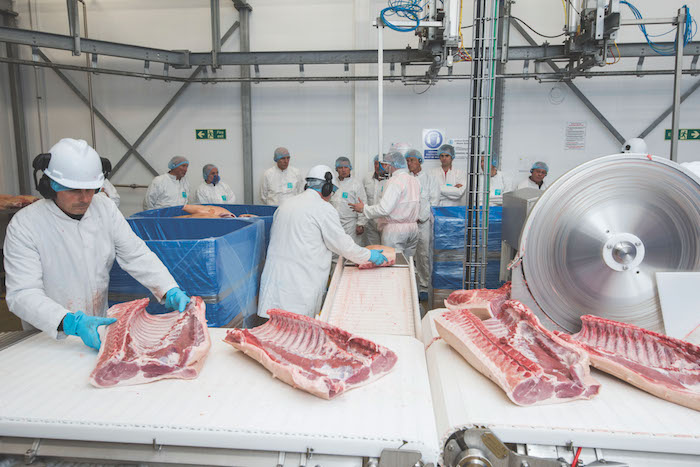The Scottish Association of Meat Wholesalers (SAMW) has called on the Government to address the lack of a workable and practicable visa scheme, through which to recruit skilled staff from EU countries, and the ever rising costs from all directions faced by Scotland’s red meat sector.
While acknowledging that COVID-19 created a massive ‘beyond control’ challenge for the Government in 2021, SAMW says member companies were badly served by Westminster over the past 12 months as regards a range of pertinent issues.
Alan McNaughton, SAMW President, said that maintaining our workforce at a level that keeps the business viable has been ‘the over-whelming concern’ for members throughout the year, and that businesses have been left on their own to fight a lone battle to find skilled workers.
“I include the emergency visa arrangements that were put in place in October this year in my criticism,” said Mr McNaughton. “This so-called temporary solution completely missed the point in the first place and hasn’t delivered to any significant degree in the two months since being put in place.
He outlined the desperate need among SAMW members for long-term solution, tailored to address a serious shortage of skilled workers, as opposed to the ‘sticking plaster response’ designed to get the industry through Christmas and the New Year.
He also noted the climbing wage rate as an ‘inevitable consequence’ of a high demand for labour, as energy bills are increasing sharply, compliance costs continue to climb, and the price being paid for raw material rocketing skywards.
“The cost burden our members endure is rapidly becoming unsustainably high,” said Mr McNaughton.
He further warned of a looming market correction which could result in an ‘explosion’ of costs and prices at the retail level, which will see retailers forced to apply cost increases to their end products.
“Official economic forecasts for the UK are already quoting inflation reaching 5% next year and there is no way the production, processing and retailing of red meat can be exempt from such pressures,” he said. “It could even be argued, in fact, that food inflation in some primary areas is long overdue in the UK.”
SAMW is also seeking greater understanding and support from Government on a number of other issues, including Scotland’s loss of export licenses to China. Athough the UK’s four pig meat export plants, including Brechin, are now in the process of having their licences reinstated, there are still significant concerns over the ongoing shortage of butchers.
The association also noted that exporting red meat in to established customers within the EU has been an ongoing challenge for smaller, niche product, businesses over the past year, with some operators giving up on trading opportunities which were previously extremely valuable and easy to manage.
The campaign to restore Scotland’s BSE status to negligible risk (NR) is also a SMW focus. The NR status, on which Scotland led the UK, was lost in October 2018 following a single BSE case in northeast Scotland. This has reportedly cost member companies around £90 million in lost revenue to date and needs to be urgently restored, and the Association is campaigning for this happen in 2022.
SAMW is also requesting some financial support from the Scottish Government towards extra costs incurred by the mandatory requirement for members to install CCTV cameras in abattoirs, a requirement which cost one medium sized plant approximately £20,000.
Another support imbalance concerns the fact that while red meat processors face full-cost recovery for official controls, as delivered by Food Standards Scotland (FSS), other food sectors, such as fish processing, enjoy the free provision of similar controls.
“Twenty years ago, there were there were over 30 meat plants operating in Scotland,” said Mr McNaughton. “Now we have only 14 plants processing livestock, with many parts of the country being without an abattoir in the local area. While there are different reasons for this shrinkage, the constant burden of compliance costs on our members has been a major contributory factor, especially while our competitor industries in the protein supply market continue to be spared from paying any of these charges. This needs to change in 2022.
“To conclude on a more positive note, however, we are encouraged that the holding of COP26 in Glasgow enabled our Scottish supply chain to showcase the natural, grass-based qualities of Scotland’s red meat production to a global audience. It allowed us to distance ourselves from the intensive feedlot image on which so much negative anti-meat publicity is based. Educating the consumer on our environmentally friendly production systems must continue if we are to ensure our product is marketed to maximum advantage.
“It’s good to be reminded what a great product we have and to be able to remind our customers that beef, lamb and pork from Scotland is produced to such high standards of public health, animal welfare and climate sensitivity, and that these products are a vital part of a healthy balanced diet.”




